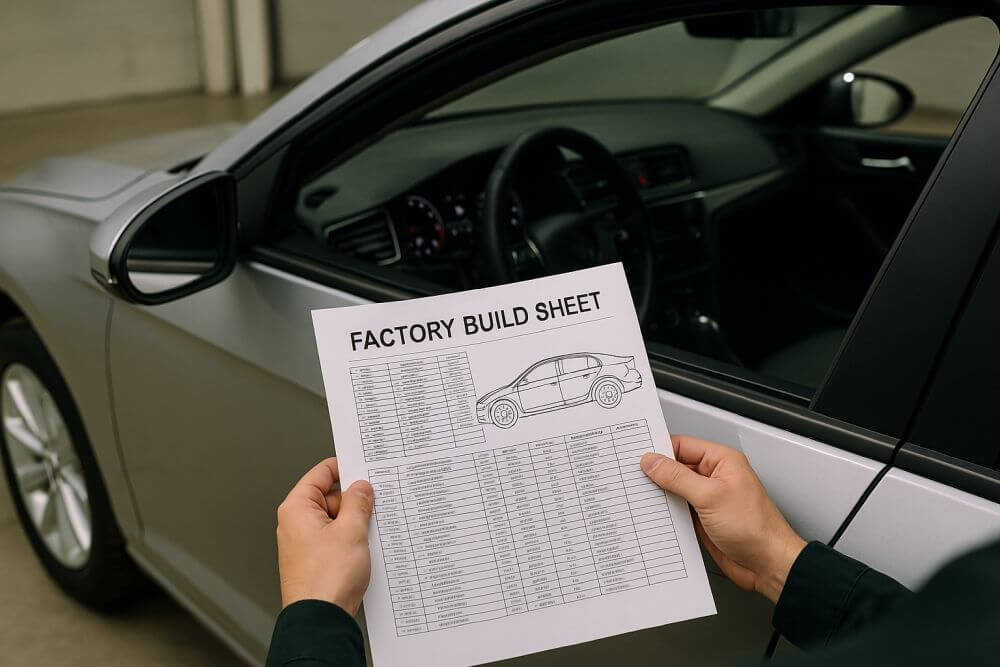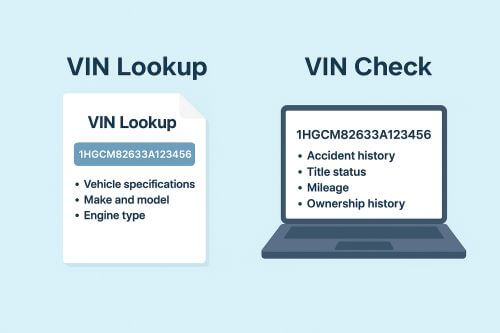Finding information about a vehicle is fast and easy today, with many options available for a VIN search. By simply entering a VIN number online, you can discover important information like whether the car has ever been salvaged or stolen, a maintenance history and an odometer check. Check out these six easy steps to conducting a successful VIN search online.
Step 1: Find the VIN
The vehicle identification number, also known as the VIN, is like a vehicle’s social security number. Each car has a unique number consisting of up to 17 digits, depending on the year the car was made. Cars manufactured after 1981 will have a 17-digit VIN, while vehicles made prior to that year will have a VIN typically ranging from 11 to 17 digits.
Do a free VIN search on the car first, since the number is typically posted right on the vehicle. Common places to look include:
- Where the dashboard meets the windshield on the driver’s side of the vehicle
- Inside the car door on the driver’s side
- On the front of the engine block or at the front of the car frame
- At the rear wheel well, just above the tire
- Underneath the spare tire
If you can’t find the VIN on the vehicle, you can also check the car title, registration or insurance policy for the car. Conducting a search for a VIN number online will rarely yield very good results since, like a social security number, this number tends to be carefully protected.
Step 2: Choose a Search Option
There are a number of places to search a VIN number online today. The Department of Motor Vehicle will run a search that includes basic information like a title history and possible accident information. You can also choose an online VIN search, through companies that specialize in such reports, like Carfax and AutoCheck.
Step 3: Open Your Wallet
A legit VIN search won’t be completely free. Yes, you can get free information from places like the DMV, but it won’t be as comprehensive as a report you actually pay for. The good news is most vehicle history reports only cost a few dollars. You can also get a bulk package from many companies that let you pull up a number of reports for a cheaper rate. This is a good option for someone beginning the used car shopping process, since they can check up on a number of vehicles before choosing the best car for their needs.
Step 4: Print the Report
What’s really great about an online VIN number check is you can get the results you want nearly instantaneously. Simply plug in your VIN, pay the fee and wait for your report to come up on your computer screen. Once it does, you can print it out for easy access when you go to inspect that used car you have your eye on.
Step 5: Learn How to Read the Report
The information available from a VIN search can be broken down into three basic categories:
- Standard Information – This includes dealer information, title history, emission inspections, registration renewals and the latest odometer reading from the DMV. All you need to do here is look over the information and compare it to what is recorded on the vehicle or included in the information the owner provides. If there are any discrepancies, ask about them right away.
- Possible Warning Signs – Other information might indicate a possibility of a problem, including records indicating the vehicle was in a rental fleet or sold at an auto auction. Another possible warning could be a VIN search that reveals the car was repossessed at some time. After all, if the original owner couldn’t afford the payments on the vehicle, it is likely he didn’t spring for a lot of maintenance costs either.
- Big Red Flags – A VIN number online search could also reveal big red flags to a potential buyer, including weather damage, salvage records, or insurance records indicating the vehicle was totaled by the insurance company at some point in its history. Move on, or proceed with extreme caution before purchasing one of these vehicles.
Step 6: Compare and Follow-Up
Now that you’ve got all this valuable information from a VIN search, use it to your advantage. Ask the current owner about any facts that concern you, and compare the information in your report to what the seller tells you. Use the information as a negotiating tool to get a really fair price on the car. If the deal seems too good to be true, or you can’t shake your worry over some of the information in the report, it’s probably time to move on.
A VIN search offers a huge selection of valuable information about a used vehicle. When you can get that information in just six easy steps, there is no reason to forgo this important part of the used car shopping process.


